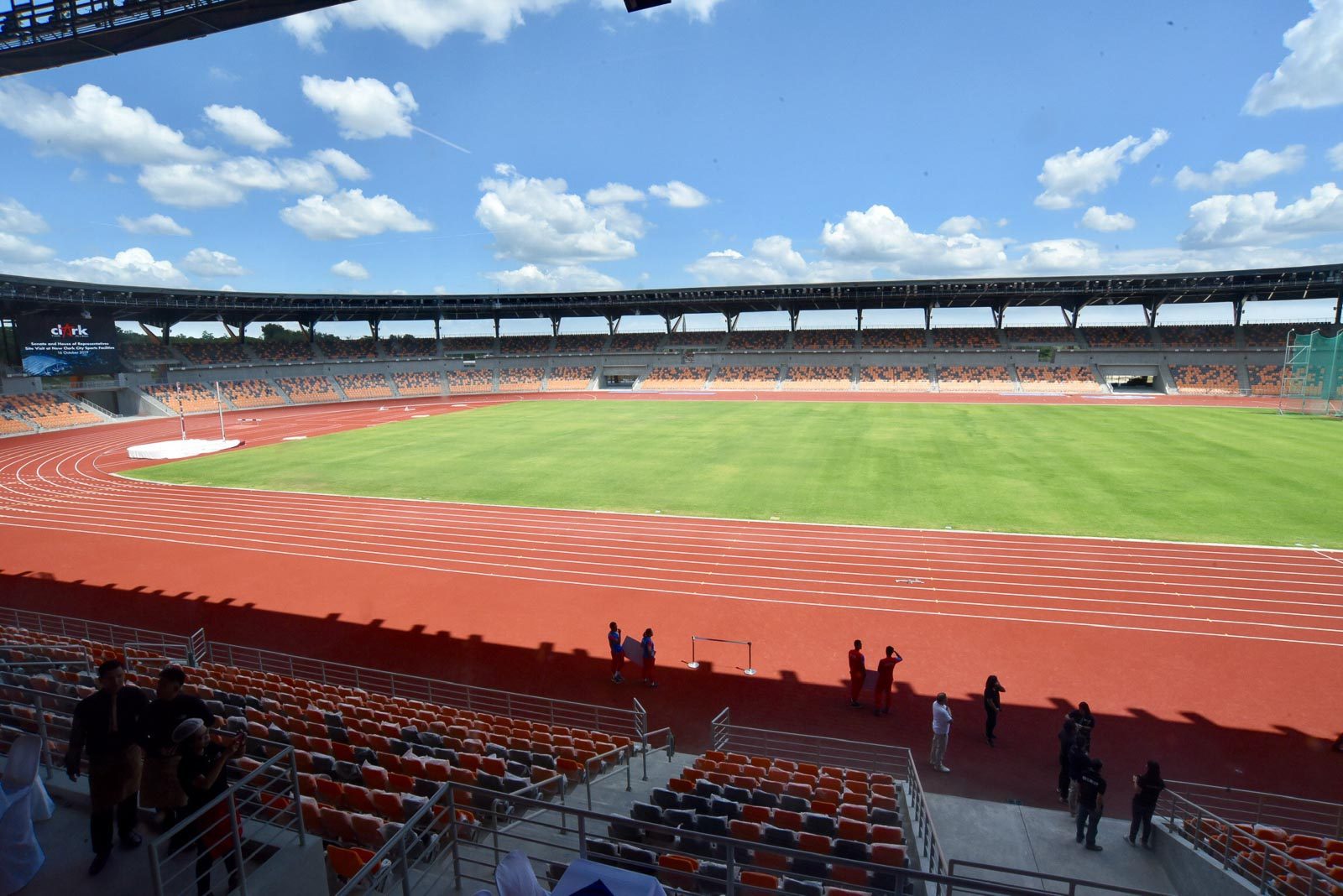SUMMARY
This is AI generated summarization, which may have errors. For context, always refer to the full article.

Part 1: BCDA, Malaysian firm ink questionable P11-billion SEA Games deal
Part 2: OGCC flagged non-bidding of BCDA’s New Clark sports facilities
MANILA, Philippines (UPDATED) – The Bases Conversion and Development Authority (BCDA) insisted on Friday, November 22, that the joint venture agreement (JVA) with Malaysian firm MTD Capital Berhad for the sports facilities to be used in the 30th Southeast Asian Games is legal and did not put the Philippine government at a disadvantage.
The Office of the Government Corporate Counsel’s (OGCC) contract review done in January 2018, which was obtained by Rappler, raised red flags over the mode by which the two parties built the sports facilities for New Clark City in Capas, Tarlac.
In summary, the OGCC’s review stated:
- The agreement between the BCDA and Malaysian firm MTD Capital Berhad was not a joint venture, but a build-and-transfer scheme
- Build-and-transfer scheme projects are subject to public bidding
- The 2 parties will equally share the net profits of the sports facilities for 25 years
- BCDA will pay MTD Capital Berhad in full and with interest the construction of the P8.5 billion sports facility
Legality. The BCDA cited another document from the OGCC, Opinion No. 182 issued in 2018, which states that the “provisions of the executed JVA and the legal framework of the Project are in compliance with the existing laws, rules and regulations.”
The OGCC’s contract review stated that the agreement between the BCDA and MTD Capital Berhad was not a JVA, but a build-and-transfer scheme, where any project is subject to public bidding.
It is unclear which document was issued first by the OGCC.
Mode of development. There are 6 available public-private partnership frameworks, namely:
- Built-operate-transfer
- Procurement
- Joint Venture
- Lease
- Concession
- Disposition or divestment
“According to ADB [Asian Development Bank], a joint venture was the best mode, to which the OGCC concurred,” the BCDA said.
The ADB serves as an advisor for the deal.
The OGCC’s contract review flagged the JVA framework and said the structure resembled a build-and-transfer scheme.
The distinction between a JVA and build-and-transfer scheme is crucial, as it determines whether a project will undergo a public bidding or a competitive Swiss Challenge.
“The unsolicited proposal underwent extensive evaluation, and BCDA and ADB were able to negotiate the project cost of sports facilities down by almost 50%,” the BCDA said.
Payment scheme. The BCDA said it was able to secure a good deal for the P8.5 billion in sports facilities, as the BCDA will not pay any amount until all works are completed.
Under the JVA, BCDA had the option to pay MTD Capital Berhad P2.2 billion for 5 years. BCDA’s latest statement said that the government opted to pay in full upon completion of the facilities to avoid incurring higher interest.
“The provisions in the construction of the sports facilities are very advantageous to the government because under the terms, BCDA will not pay a single centavo until the facilities are completed and accepted,” the BCDA said.
To date, BCDA has not made any payment to the Malaysian firm.
BCDA also noted that the Malaysian firm has undertaken the project through “its own sources of financing.” BCDA noted that it did not enter into any loan agreement.
The JVA was clear the BCDA will only help MTD Capital Berhad in looking for a bank. The BCDA reported on its website it secured financing from the Development Bank of the Philippines worth P9.5 billion.
Profit sharing. BCDA said that upon full payment of the project and complete turnover, it will receive 100% share of the revenues of the sports facilities.
The JVA was clear that profits of the sports facilities after taxes will be equally shared by BCDA and MTC Capital Berhad.
“The parties hereby agree that the net profit after tax and the net losses relating to the sports facilities: i.) 50% to or by (as applicable) the BCDA; and ii.) 50% to or by (as applicable) to the Winning Private Sector Proponent [MTC Capital Berhad],” the JVA said.
Moreover, the JVA will last up to 25 years and can be extended for another 25, which means that the net profit sharing indicated in the JVA will last during the contract period.
In a text message to Rappler, the BCDA clarified that the profit sharing scheme will only take effect when the BCDA opts to pay the project in 5 years. Since the government opted to pay in full, the BCDA said, no profit sharing will take place. – with a report from Lian Buan/Rappler.com
Add a comment
How does this make you feel?
There are no comments yet. Add your comment to start the conversation.